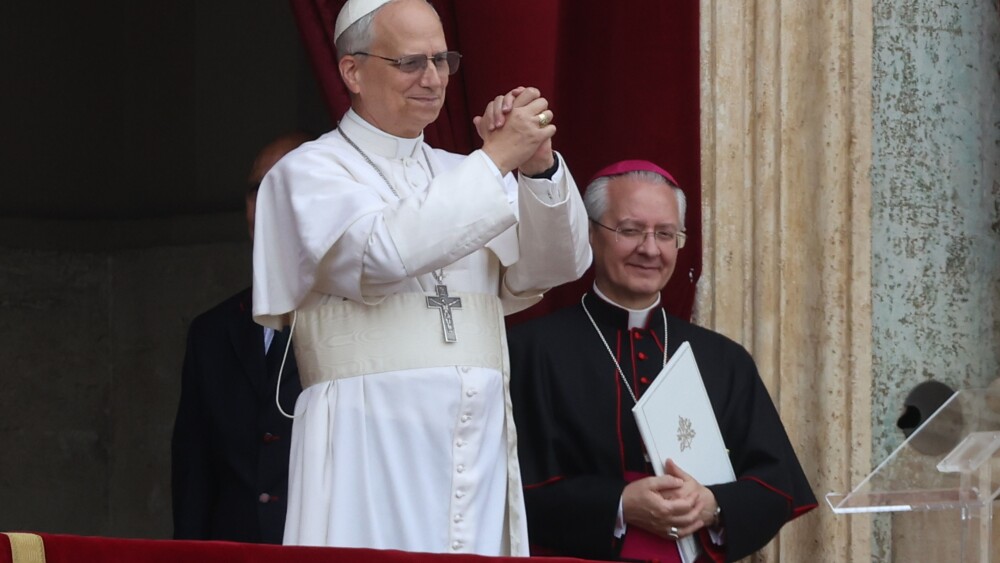In the wake of the second anniversary of the October 7, 2023, attack on Israel by Hamas, the Vatican is using its platform to criticize Israel, expressing selective moral outrage while ignoring the real perpetrators, and consequently doing little to help the Palestinians whose victimhood they allegedly champion. The Vatican’s casting of Israel’s military campaign against Hamas as an “ongoing massacre” obscures the legal complexities of asymmetric conflict, the constraints posed by urban warfare, and undermines the relevance of established international humanitarian law.
If the Palestinians are defenseless, it is against Hamas and not Israel.
While recognizing Israel’s right to defend itself, the Vatican’s Secretary of State Cardinal Pietro Parolin qualified his support with criticism of Israel’s tactics, saying, “[E]ven legitimate defense must respect the principle of proportionality[,]” claiming that Israel, in waging its war against Hamas, is “disregard[ing] the fact that it is targeting a largely defenseless population.” This is false. If the Palestinians are defenseless, it is against Hamas and not Israel. What is missing from the Vatican’s rhetoric is condemnation of Hamas, and it is stunning that the Vatican perpetuates such a libelous claim against Israel, simultaneously offering no real support to the Palestinian people.
While critics of Israel pay lip service to the refrain of “freeing the hostages,” the Palestinian people would be better served if those same critics also condemned the pervasive use of Palestinians as human shields, an actual war crime committed by Palestinian leadership against their civilians. International humanitarian law is clear on this point.
Article 51(7) of the 1977 Protocol I Additional to the 1949 Geneva Conventions prohibits using civilians to shield military objectives, specifying that “civilians shall not be used to render certain points or areas immune from military operations.” Hamas, in contravention of international law, operates from densely populated residential zones, under hospitals, within schools, even inside people’s homes.
While the unlawful use of human shields in armed conflict is real, the laws of war require “all feasible precautions” be taken to avoid or at least minimize incidental loss of civilian life, injury to civilians, and damage to civilian objects. However, the law only requires that a military attack not be “excessive in relation to the concrete and direct military advantage anticipated.” In armed conflict, civilian casualties occur, but this does not necessarily render the miliary action violative of international law.
Hamas’s use of human shields does not absolve Israel from exercising proportionality under humanitarian law, but the calculus is not as black and white as the Vatican claims. The Vatican wrongly treats proportionality as a precise formula that automatically condemns large civilian death tolls. But proportionality is a balancing test, not a counting game, and based not on the idea of retaliation, but rather, mission goals. In Gaza, civilian casualties are unavoidable in achieving the uprooting of Hamas and its terror infrastructure; even if opponents contest these ends, they are not illegal.
Neither the Vatican nor any other diplomatic entity can evaluate excessiveness or judge what is considered a military advantage. That is a determination for scholars and practitioners of international law such as Major John Spencer, urban warfare expert from West Point, who confirmed that “Israel is upholding the laws of war,” or Colonel Richard Kemp, commander of the British Forces in Afghanistan, who has called Israel “the world’s most moral army.” The law is on Israel’s side, and without offering legal arguments to support their accusations of disproportionality, the Vatican simply foments animosity towards Israel through hyperbolic accusations of massacre.
If the Vatican were honest in their moral judgment, they would acknowledge that the suffering of the Palestinian people is a result of its leadership’s own making.
Israel’s primary objective since October 7, 2023, has been the release of all Israeli hostages in Gaza and the destruction of Hamas as a fighting force. Had all the hostages been returned two years ago, Gaza would not look the way it does today. If the Vatican were honest in their moral judgment, they would acknowledge that the suffering of the Palestinian people is a result of its leadership’s own making; Pope Leo XIV should reserve his criticism for those who employ the use of Palestinian human shields in contravention of international law.
Branding Israel’s Gaza campaign a massacre weakens the Vatican’s moral credibility. It absolves Hamas of responsibility for its assault on Israel, its continued harboring of hostages, and its use of its own people as human shields. In making erroneous claims regarding Israel’s adherence to international law, the Vatican ignores Israel’s existential security dilemmas and fails to hold Hamas—the real perpetrators of Palestinian suffering—to account. It fans the flames of antisemitism and encourages further terrorism by Hamas and groups that draw inspiration from it. In waging its one‑sided crusade against Israel, the Vatican engages in moral myopia and imperils the lives of both the Israeli and Palestinian people.







